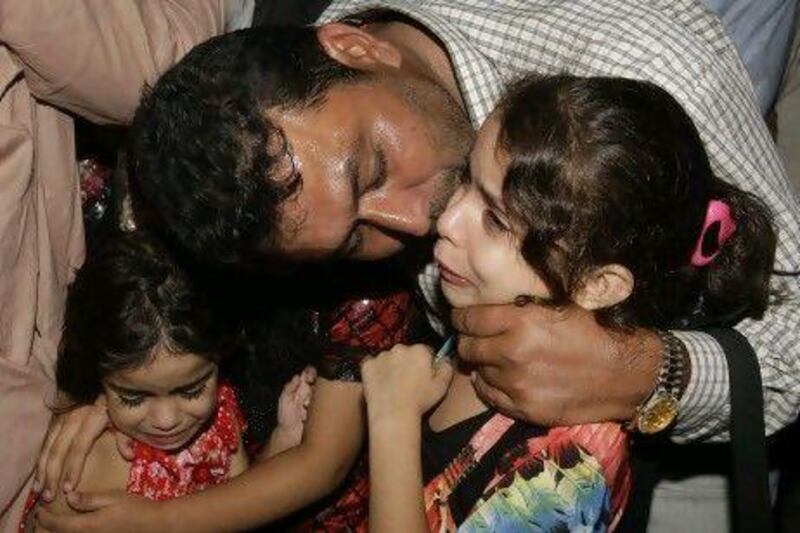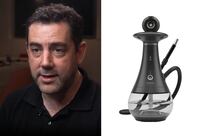DUBAI // A Pakistani sailor who was held hostage aboard the MV Albedo by Somali pirates has told of the torture and brutality he and his fellow crew members endured during 21 months of captivity.
Seven Pakistani hostages were freed on Thursday after a ransom of US$1.1 million (Dh4m) was paid to Somali pirates. The remaining 15 hostages continue to be held captive by the pirates who boarded their Malaysian-flagged cargo vessel in November 2010, while it was en route to a Jebel Ali port.
Chief Officer Mujtaba said the pirates repeatedly hit them with pipes and with the butt of their AK-47 assault rifles. They also used pliers to rip out the webbing on the sailors' palms, he said.
"These men are not human. When they hit us, they would not stop. They hit us on the head. Some officers have severe bleeding on the head. One cannot use his left hand, it was damaged in the beating."
An Indian sailor in his 20s, who was thought to have died due to a lack of medication last year, was in fact shot in the chest by the pirates, Mr Mujtaba said.
He was shot after a heated phone conversation with the ship's Malaysian-based Iranian owner.
"We heard them shouting about threats that the navy would be sent to attack them, that the Indian navy would be sent. They called the boy down and five minutes later, we heard two shots. They called us and said: 'Should we throw the body into the sea or keep him in the fridge?'"
The crew chose the later, hoping to be able to hand the body over to his family when they were released.
"If their governments and people do nothing for the 15 other men, they will surely die," he said.
The pirates continue to hold 15 sailors - seven Bangladeshi, six Sri Lankans, an Indian and an Iranian.
Mr Mujtaba said the pirates had used translators to communicate with the sailors, but switched them regularly to prevent the hostages from establishing any rapport with their captors.
When one of the sailors hid fuel from the pirates, punishment was severe. "They used pliers and pressed it into his palm. They made holes in the skin between his fingers," said Mr Mujtaba.
Other torture tactics included keeping certain sailors in solitary confinement inside containers for days without food. The men were also packed into a small swimming pool that had been emptied out.
"They tortured us a lot," said Mr Mujtaba. "They would lock all of us into the small swimming pool. We couldn't sit or sleep. We had to stand. For three days they didn't give us any food or let us go to the toilet."
Some days, the sailors would draw up plans to overpower the pirates and take back the ship.
"At first we thought we would be free after three or four months but then it got unbearable," Mr Mujtaba said. "They made us call our families and put pressure on them. When I heard my wife and children cry ... what father can bear it? I then decided to kill one or two pirates. The others also thought so. We had lost all hope, we knew it would be suicidal, but we thought we should try. If I killed even one, I knew they would not leave me, but I thought I must do something."
In a phone call monitored by the pirates, Mr Mujtaba learnt his wife had given birth to son. That strengthened his resolve to live.
"I held on to my faith. We bore everything they did to us," he said.
The freed sailor wept when he saw 17-month-old son Mohammed for the first time, along with his three daughters on Thursday night.
His daughter Hira, 8, spurred collection efforts when she spoke of not wanting to live if her father died during a nationally-televised appeal in May.
"I feel so happy to see my children and so sad," he said. "In my heart I feel bad because other families are still waiting. My appeal is for governments to help. The pirates will not listen to anything, they want money."







